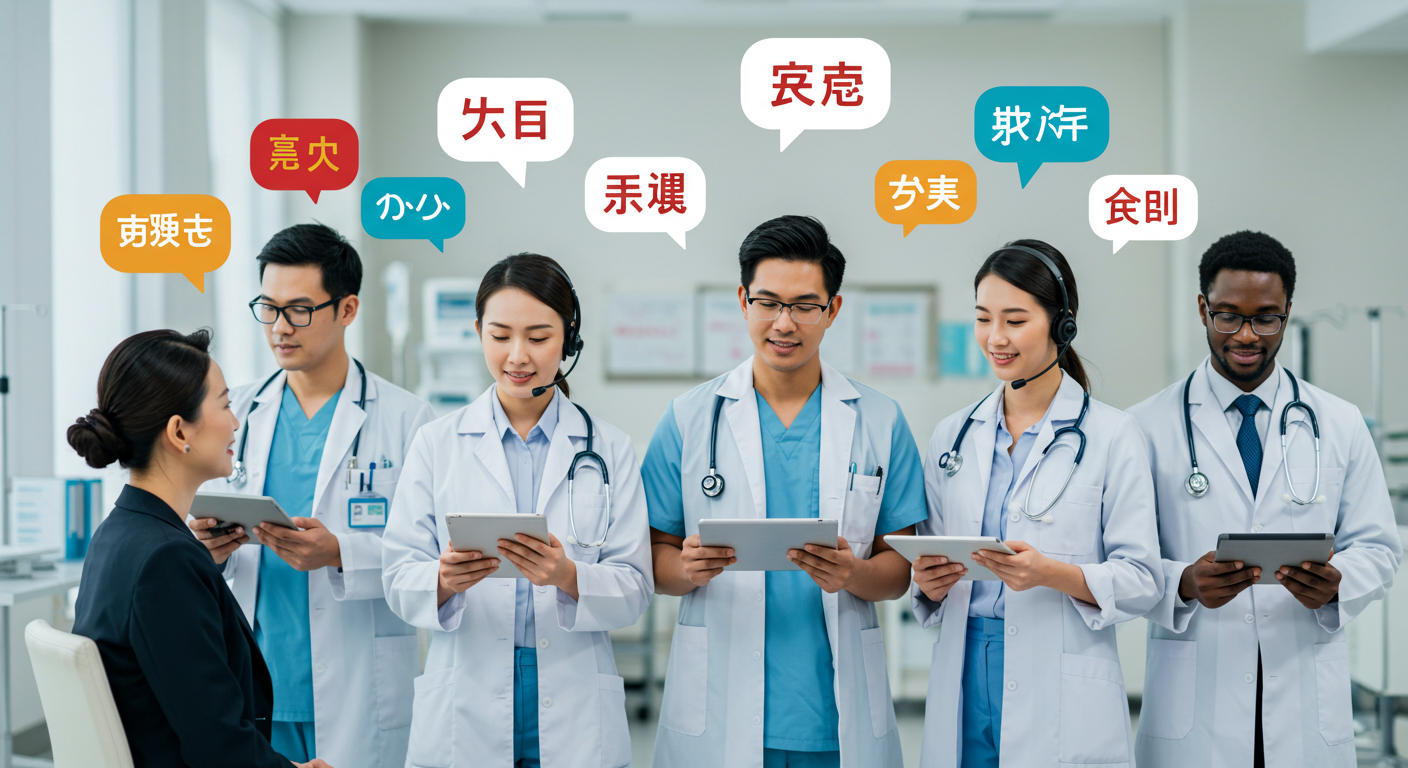In the healthcare sector, effective communication is crucial to ensure quality care for patients of diverse nationalities. Providing multilingual services helps eliminate language barriers and ensures that medical information is conveyed accurately.
The Importance of Multilingual Services in Healthcare
Access to clear and accurate information is fundamental in healthcare. A lack of understanding of medical instructions can lead to treatment errors and compromise patient safety. That’s why having specialized multilingual services improves care and prevents unnecessary risks.
Key Multilingual Services in the Healthcare Sector
- Medical Document Translation
Clinical documentation, patient reports, and medication leaflets must be translated with precision. Any misinterpretation in these materials can jeopardize treatment safety. - Real-Time Medical Interpretation
Interpreter assistance during consultations and medical procedures ensures that both patients and healthcare professionals understand every detail of the diagnosis and treatment plan. - Localization of Health Platforms and Applications
Linguistic adaptation of websites and mobile apps allows patients to access medical information in their native language, improving the user experience. - Subtitling and Voiceover for Educational Content
Informational videos on diseases, treatments, or medical procedures should be available in multiple languages to reach diverse audiences. - Translation Review and Validation
The quality of translations must be ensured through specialized reviews conducted by professionals with expertise in medical terminology.
Benefits of Implementing Multilingual Services in Healthcare
Multilingual services enable more inclusive and accurate care. They improve the relationship between doctors and patients, ensure regulatory compliance, and build trust in healthcare services. Moreover, they help reduce medical errors caused by communication issues.
Conclusion
Multilingual services in the healthcare sector are essential for ensuring safe and accessible care on a global scale. Translation, interpretation, and content localization break down language barriers and enhance the quality of healthcare delivery. Integrating specialized linguistic solutions is a key investment in health equity and the satisfaction of international patients.




